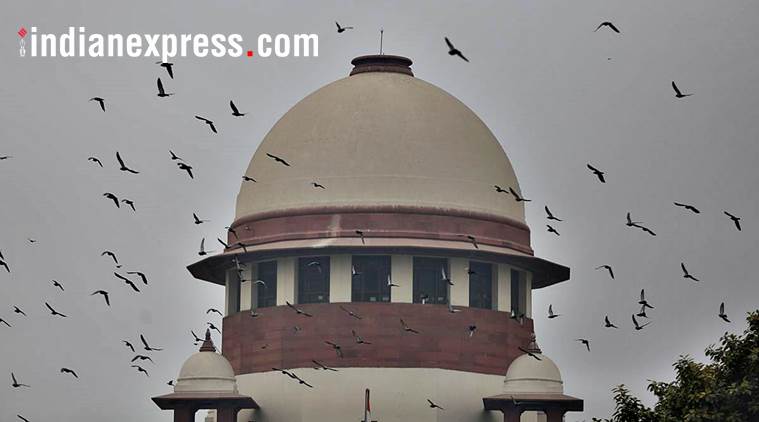 The Centre will file a Special Leave Petition in the Supreme Court this week in a bid to rollback UGC’s March 5 order. (Express Photo by Tashi Tobgyal)
The Centre will file a Special Leave Petition in the Supreme Court this week in a bid to rollback UGC’s March 5 order. (Express Photo by Tashi Tobgyal)
The Union government is set to approach the Supreme Court this week to oppose the Allahabad High Court order, which paved the way for the UGC’s new formula for calculating reservation in faculty positions across universities, on the ground that it will drastically reduce the number of reserved posts, leading to “greater inequity” and “inadequate representation” of the SC and ST community.
As first reported by The Indian Express on March 20, the Centre will file a Special Leave Petition in the Supreme Court this week in a bid to rollback UGC’s March 5 order, which announced that reservation for teachers will be calculated department-wise, instead of being based on the total posts in a university.
The UGC order was based on the High Court verdict of April 2017 when, while hearing a case on teachers’ recruitment at Banaras Hindu University, it had said each department, rather than the entire university, should be treated as the “unit” on which reservations are based.
Following a row and feedback from an inter-ministerial committee, the HRD Ministry is set to appeal against the above court order on the following grounds:
* The government has collected empirical evidence that shows implementation of the Allahabad HC order reduces the number of reserved teaching posts drastically.
* Reservation based on department or subject as a unit will lead to a situation in which many departments with single post cadres (usually the position of a professor) will be outside the purview of reservation.
* Even in departments having two or more faculty posts, but less than, say, 15 in a cadre, only one post will be reserved for an SC candidate at serial number 7 and for an ST candidate at serial number 14. So if a department has only six associate professor-level posts, then nothing will be reserved for SC/ST candidates. Reservation will only be implemented through rotation and that could take years.
* As per Article 16(4) of the Constitution, the Union government is empowered to make provision for reservation in appointments to posts under the state by executive orders.
* The Allahabad HC order impedes the government’s power to constitute as many cadres in any particular service as it may choose depending on administrative convenience and expediency.
* The judgments on which the High Court based its own order were concerned either with state legislations or incorrect advertisements issued by universities. These judgments did not examine the reservation policy of central government.